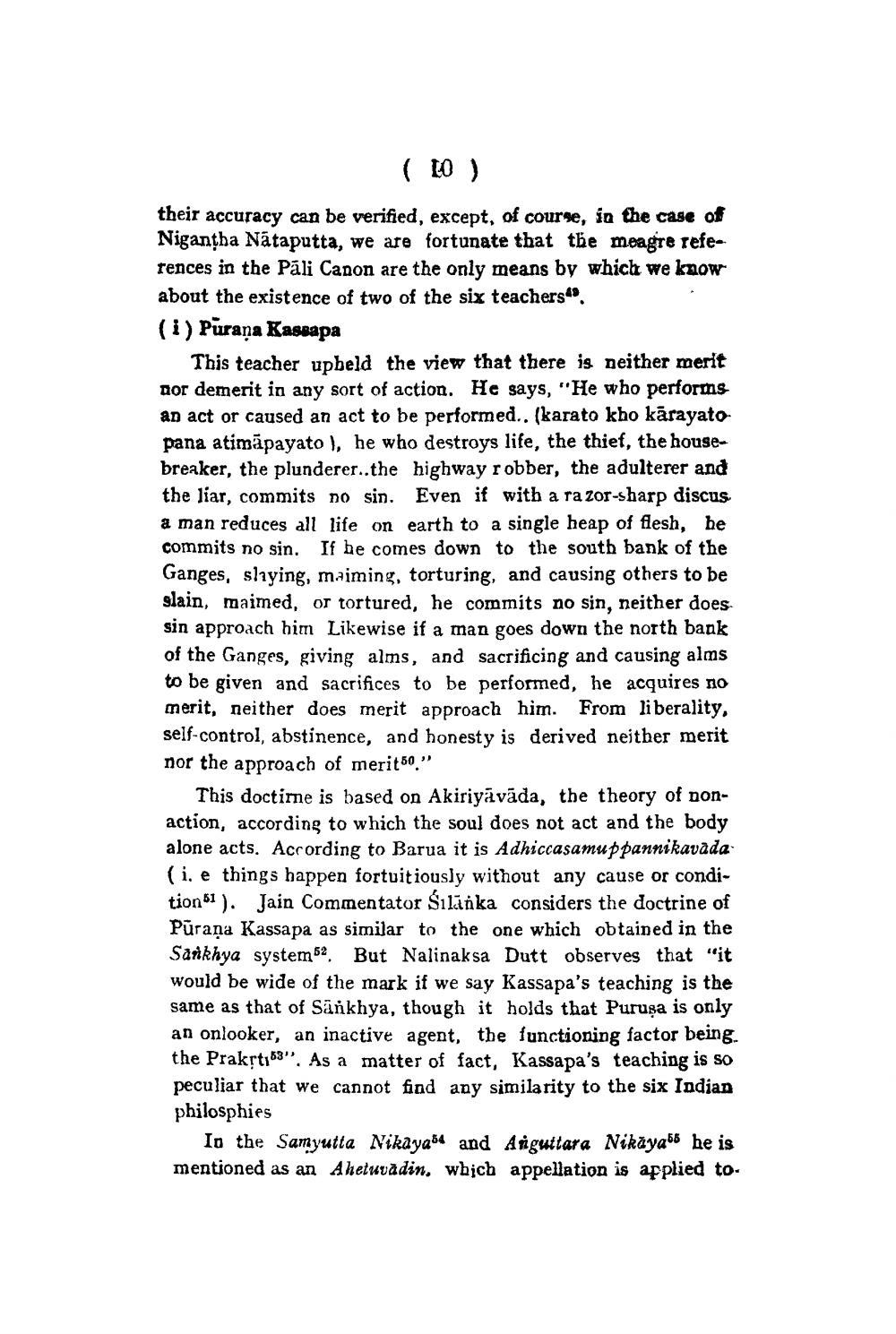________________
( 10 )
their accuracy can be verified, except, of course, in the case of Nigantha Nataputta, we are fortunate that the meagre references in the Pāli Canon are the only means by which we know about the existence of two of the six teachers".
(i) Purana Kassapa
This teacher upheld the view that there is neither merit nor demerit in any sort of action. He says, "He who performs an act or caused an act to be performed.. (karato kho kārayato pana atimapayato), he who destroys life, the thief, the housebreaker, the plunderer..the highway robber, the adulterer and the liar, commits no sin. Even if with a razor-sharp discus a man reduces all life on earth to a single heap of flesh, he commits no sin. If he comes down to the south bank of the Ganges, slaying, maiming, torturing, and causing others to be slain, maimed, or tortured, he commits no sin, neither does sin approach him Likewise if a man goes down the north bank of the Ganges, giving alms, and sacrificing and causing alms to be given and sacrifices to be performed, he acquires no merit, neither does merit approach him. From liberality, self-control, abstinence, and honesty is derived neither merit nor the approach of merit50"
This doctime is based on Akiriyāvāda, the theory of nonaction, according to which the soul does not act and the body alone acts. According to Barua it is Adhiccasamuppannikavāda (i.e things happen fortuitiously without any cause or condition51). Jain Commentator Šilanka considers the doctrine of Purana Kassapa as similar to the one which obtained in the Sankhya system 52. But Nalinak sa Dutt observes that "it would be wide of the mark if we say Kassapa's teaching is the same as that of Sankhya, though it holds that Purusa is only an onlooker, an inactive agent, the functioning factor being. the Prakṛti". As a matter of fact, Kassapa's teaching is so peculiar that we cannot find any similarity to the six Indian philosphies
In the Samyutta Nikaya and Anguttara Nikaya he is mentioned as an Ahetuvadin, which appellation is applied to




